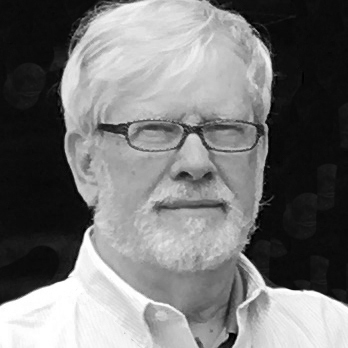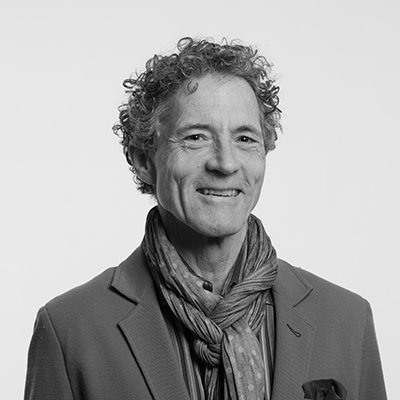
Faculty of Humanities
Karen V. Hansen
Professor, Department of Sociology, Brandeis University and Director of the Brandeis Women's Studies Research Center
A wide-ranging and internationally recognised researcher, Karen V. Hansen’s research and teaching combines sociology and history, and she does so across a broad chronological spectrum. On account of the combination of Karen V. Hansen’s impressive academic scope and her many influential sociological contributions, SDU is proud to award her an honorary doctorate.
Karen V. Hansen's research is characterised by its clear writing style, a superb theoretical overview, an impressive analytical depth and an empathic approach to the material, which is based on a true wealth of sources. At the same time, Hansen's research spans a broad chronological spectrum and a diversity of subjects.

Faculty of Science
Gordon Hager
Head of Laboratory of Receptor Biology and Gene Expression; Director of the Center of Excellence in Chromosome Biology, National Cancer Institute, NIH, Bethesda, Maryland, USA.
For the past 30 years, Dr Gordon Hager has conducted research into chromatin biology, an area that belongs to the complex and constantly surprising field of research in epigenetics, which has shown that our cells contain other hereditary material than DNA. Dr Hager’s work is of great importance for the understanding of, for instance, major diseases such as cancer. Gordon Hager has been associated with the Department of Biochemistry and Molecular Biology at SDU since 2014 and has made a significant contribution to both teaching and research together with, among others, Professor Susanne Mandrup from SDU, Head of Research and Head of the Danish Institute for Advanced Study (D-IAS).

Faculty of Business and Social Sciences
Eric John Arnould
Senior Fellow, Department of Marketing, Aalto University School of Business
Eric Arnould received his PhD in Social Anthropology from the University of Arizona, Tucson in 1982 for a project on market relations in West Africa. After working as a development consultant in Niger for a number of years, he has since 1986 held a large number of academic positions, initially in anthropology and then marketing in the US, United Kingdom, Denmark, France and Finland. He is currently a senior fellow at Aalto University in Helsinki. He is awarded an honorary doctorate at SDU for:
- Pioneering anthropological research on the market and its institutions as well as on consumer cultural theory, a field he has helped to establish.
- A nearly 25-year collaboration with SDU on the establishment of a leading international research environment within consumer culture theory and market systems.
- A significant contribution to the building and success of SDU's unique education programme in Market and Management Anthropology (commonly known as ‘MMA’).

Faculty of Health Sciences
Mihai Netea
Professor, MD, PhD in ‘Experimental Medicine’ at the Department of Internal Medicine, Radboud University Nijmegen Medical Centre in the Netherlands.
Professor Netea is one of the world's leading experts in infectious diseases and immunology. He is especially recognised as the first to have demonstrated memory properties of the innate immune system, a phenomenon often called ‘trained immunity’. He was awarded the Spinoza Prize, among others, in 2016 for this discovery.
In summary, Netea’s discovery of ‘trained immunity’ represents a paradigm shift in the understanding of immunological memory and its evolutionary roots. The understanding of the molecular basis of the underlying processes has identified new therapeutic targets, and this will most certainly lead to a new generation of vaccines and immunotherapeutic drugs.

Faculty of Engineering
Jennifer Lippincott-Schwartz
B.A. (with Honours) in Psychology and Philosophy, M.S. in Biology, Ph.D. in Biochemistry, Group Leader Howard Hughes Medical Institute - Janelia Research Campus, Ashburn, Virginia
Jennifer Lippincott-Schwartz has a long career behind her in bioimaging and cell biology. Her research has had an enormous impact on how we understand cell biology today and how we can use bioimaging in molecular biology.

Nina Nørgaard
"Multimodal Stylistics of the Novel – More than Words"
The Faculty of Humanities, the University of Southern Denmark, has conferred the humanities doctorate for the dissertation ‘Multimodal Stylistics of the Novel – More than Words’ on Nina Nørgaard. The dissertation was defended on 20 October 2020.

Morten Gjerstorff
"Cancer/testis antigens in the development and treatment of cancer"
The Academic Council, the Faculty of Health Sciences, the University of Southern Denmark, has conferred the medical doctorate for the dissertation ‘Cancer/testis antigens in the development and treatment of cancer’, on Morten Gjerstorff. The dissertation was defended on 4 June 2020.